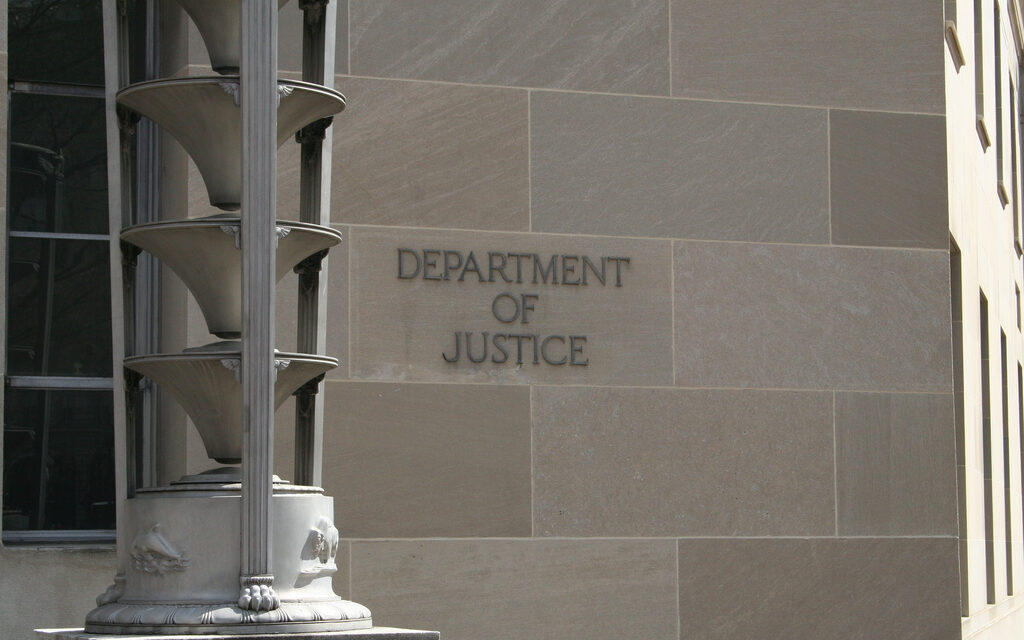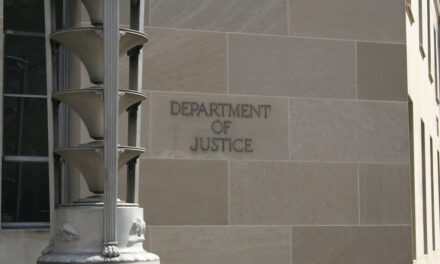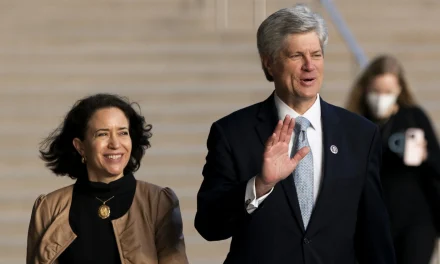FACTS:
- Deputy Attorney General James Comey — who appointed U.S. Attorney Patrick J. Fitzgerald to investigate the CIA leak case — is leaving the Justice Dept. for a private sector job.
- Pres. Bush has nominated Timothy Flanigan, senior vice president and general counsel of Tyco International, to replace Comey.
- “[T]he only control Fitzgerald’s Justice handler [Comey, then his successor] has is to fire him,” (WSJ July 29, 2005 Washington Wire, sub.)
MY QUESTIONS: Why is Comey leaving, and how would Flanigan’s controversial appointment affect the leak case?
I haven’t been able to find so much as a hint that Comey is leaving Justice because his December 2003 appointment of Fitzgerald — a longtime friend and co-worker (WSJ, sub.) in the Manhattan U.S. Attorney’s office — rankled the Bush administration.
BELOW, the controversy over Bush’s appointment of Timothy Flanigan, and why Sen. Arlan Specter, Sen. Judiciary chair, may not support Flanigan:
Deputy Attorney General James Comey — appointed by the Bush White House to be second in charge at Justice — was given authority over the CIA leak case because, as John Dean pointed out in a January 2004 Salon article, Ashcroft had to recuse himself.
The new head of the investigation, Patrick J. Fitzgerald, is a high-profile, well-respected U.S. attorney whoa runs one of the more important offices in the country, Chicago’s. Fitzgerald is also a close friend of Deputy Attorney General James Comey, who announced his appointment. It seems unlikely that Fitzgerald was brought in merely to kill the case.
The WSJ reports today on the close relationship between Comey and Fitzgerald:
By December [2003], the White House had picked James Comey, then the Manhattan U.S. attorney, to be the No. 2 official at the Justice Department. Three weeks later, he turned to Mr. Fitzgerald, a close friend and career prosecutor, to be special counsel in charge of the leak investigation. The two men had worked together in the 1990s in the U.S. attorney’s office in Manhattan. The Times heralded the appointment, saying in a Dec. 31, 2003, editorial that Mr. Fitzgerald needed “true operational independence.”
Dean pointed out in the 2004 Salon piece that the appointment of Fitzgerald gave new life to the case:
On Dec. 30, Deputy Attorney General Comey held a press conference to announce that Ashcroft had removed himself from the investigation. Comey said that the investigation would instead be headed by Fitzgerald. Of note to me was Comey’s comment that “this has come together really in the last week” — meaning, apparently, the week of Dec. 22-26 — the Christmas holiday week during which the FBI raised the prospect of a grand jury.
As Comey explained, given Fitzgerald’s U.S. attorney status — which will be continuing concurrent with his “special counsel” status — there will be no interruption in the investigation. Comey noted that if Fitzgerald “needs to issue a subpoena involving the media, for example, or if he wants to grant immunity to somebody,” he will not have to obtain approval of the Justice Department. (The reference to the media certainly hints at subpoenaing Novak’s phone records or calling him before the grand jury — again suggesting progress in the inquiry.)
So we know that Comey, a White House appointee acting because Ashcroft couldn’t, appointed Fitzgerald. Ashcroft resigns, and Alberto Gonzales becomes U.S. Attorney General. Comey is now departing for the private sector, and Bush has now nominated a Tyco corporate attorney to replace him.
The concerns about Timothy Flanigan extend far beyond his ties to Tyco. Flanigan, a member of the Federalist Society, was involved in the 2000 Bush v. Gore case, as Molly Ivins points out in her July 28 column about SCOTUS nominee John Roberts:
Other Federalists, Timothy Flanigan (who’s now in confirmation hearings for deputy attorney general) and Ted Olson (who became solicitor general of the United States) signed onto the brief to convince the Supremes to stop the count in Florida and install Bush.
Andrew Zajac of the Chicago Tribune writes — in a story picked up by Pennsylvania’s Timesleader.com via the KRT wire — that Flanigan was also involved in the infamous “torture memos”:
Timothy Flanigan, President Bush’s nominee to be deputy attorney general, has repeatedly found himself in pitched political and ideological battles, including the court fight over the disputed Florida recount in the 2000 presidential election, and the crafting of White House memos that justified torture of alleged terrorists.
His involvement with those memos while serving as deputy White House counsel following the Sept. 11 attacks almost certainly will draw questioning from the Senate Judiciary Committee, which is slated to hold a hearing on his nomination Tuesday afternoon.
Then there is Flanigan’s involvement, Zajak finds, with Jack Abramoff:
In his current position as senior vice president and general counsel of Tyco International, Flanigan oversaw the work of Jack Abramoff, a lobbyist who is the subject of at least two congressional investigations and a Justice Department inquiry and is alleged to have bilked millions of dollars from six Indian tribes.
Specter is worried (Newsday, July 28):
A peeved Sen. Arlen Specter, chairman of the Senate Judiciary Committee, has hinted he might not support President George W. Bush’s choice to serve as No. 2 man at the Justice Department if the nominee isn’t more willing to allow lawmakers to look over his shoulder.
Specter (R-Pa.) said Tuesday that his backing for Timothy Flanigan, a former deputy White House counsel, would depend on his “understanding of oversight” as explained in written questions from the committee.
It’s too early to tell if Specter’s pique will jeopardize Flanigan’s confirmation as deputy attorney general.
AGAIN, MY QUESTIONS: Why is Comey leaving, and how would Flanigan’s controversial appointment affect the leak case?
Fitzgerald has considerable power. But his friend at Justice is gone. What will that do to his investigation?





